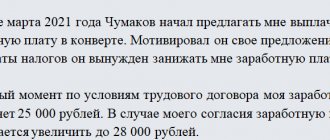An ombudsman is not only a civilian, but also an official who is authorized by the constitution or law to monitor the activities of various government agencies, departments, and ministries. Not long ago, the President of the Russian Federation signed some amendments made to the Federal Constitutional Law “On the Commissioner for Human Rights in the Russian Federation.”
They say that an official has the authority to provide people not only legal, but also organizational and informational assistance. This document also establishes certain requirements for the applicant for this position.
It should be noted that the sample appeal to the Ombudsman for Children's Rights involves filing a complaint in writing. You can find out how to do this correctly in this article.
How to write a complaint?
Formal complaints must be made in accordance with the following requirements:
- the text of the complaint can be typed or handwritten;
- the address must be indicated in the header;
- indicate the details of the senders of the complaint;
- The complaint must succinctly state the essence of the issue, it must be drawn up taking into account all the norms for conducting official correspondence.
If a complaint is filed by a single mother, orphans, large families, veterans, disabled people or citizens who belong to other preferential categories, then it will be considered first.
Without execution, complaints will be sent to:
- without specifying information about the applicant;
- with an inaccurate or incomplete applicant address;
- which contain advertising;
- with threats, obscene language;
- which are impossible to read.
To resolve the issue as quickly as possible, it is best to send a complaint to the Commissioner at your place of registration or residence. You can find out the addresses and contacts of regional ombudsmen here: https://deti.gov.ru/.
Related posts:
to “Write a complaint to the Children’s Ombudsman Anna Kuznetsova”
help protect the rights of the child, the child was born with a diagnosis of cerebral palsy, but the MSE refuses to recognize her as disabled, although they have already been operated on in 2021. The child’s muscles have become atrophied, the orthopedist recommended a complex orthopedist in November 2021. shoes and a splint for the whole leg at night, having undergone rehabilitation and undergoing a course of treatment in the neurological department, the orthopedist already recommends a splint for both legs, and still the MSE sees no reason. What should we do? Help.
My name is Nastya. I am 12 years old. I want to warn you that I will mercilessly destroy my enemies, because I am homeless, I have nowhere and nothing to live on, I study at school by correspondence. You are obliged to help me destroy my enemies, through whose fault I found myself in this position, and also to deliver this letter to the President as Commander-in-Chief, since I declare war on my enemies. If YOU do not negotiate with me, then they (the enemies) will burn in a fire. These include the police, judges, administration, housing and communal services and other cowardly scoundrels who protect thieves and swindlers, through whose fault I remained poor. If you are interested in my letter, then in the video there is more detail with the documents. Here is the link: https://www.youtube.com/watch?v=w8P7NWtiTQc.
My name is Anna, I'm 15 years old. I don’t have my own computer, so I turned to my grandmother’s friend to write you a letter. I was born in Yalta in 2002, until today I lived here and went to school. My mother has been deprived of parental rights since January 2021. Her partner, Vitaly Vladimirovich Sidorenko, until recently a citizen of Ukraine, gets my mother drunk and tries to get me sent to a special boarding school. Thanks to my grandmother Valya, who was temporarily my guardian, with great difficulty I received a Russian passport by court decision, but without registration. Grandma Valya and I went everywhere: to the prosecutor’s office, to the police, to the services for minors, guardianship, families and youth. Our apartment is not privatized. Luda's mother and grandmother are registered in it. How many times did my mother’s roommate swear when he was drunk, throw up his hands and kick me out of the house. I spent the night with friends many times. He went to school and spread gossip about me, that I was a drug addict, an alcoholic, a prostitute. But this is all untrue. And now he and my mother want to privatize and sell my grandmother’s apartment, and send me to a boarding school. I really need registration. Grandma Valya filed a lawsuit regarding the registration issue, but the court never decided anything. The judge only read out characteristics from the police and the guardianship service, which were not true. But on the main issue - registration - nothing was decided. I feel like they want to leave me homeless. They will send me to a boarding school for 3 years, and when I return, I won’t find anything. These litigations have been dragging on for 3 years and nothing has been resolved. It turns out that the adult uncles and aunties decided to deceive one minor child. I am very afraid for my grandmother. Vitaly told my grandmother that when I went to boarding school, he would poison her. He and his mother took her grandmother’s pension card, receive her pension and drink away. Grandma Lyuda and I would have been hungry if it weren’t for Grandma Valya. She brings us groceries, tops up her phone account so she can stay in touch all the time, and buys me some things. Help me and my grandmother, we are very afraid. After all, the prosecutor's office and police, which are supposed to protect every person, are criminally inactive. There is no one to protect me. Two lawyers first agreed and then refused to take my case. It's not just like that. Please help us. You can give your answer to Svetlana at the address below, and she will pass it on to us. There's nowhere else to go.
hello help. in Tulun, Irkutsk region. A 5th grade boy committed violent acts against a first grader in the girls' restroom. The girl’s parents are not rich, simple robots. And the boy’s mother works in the local district, his grandmother is also in the district and works part-time at the same school as a speech therapist... to the director of Pisarevskaya school number 8, Elena Petrovna Permyakova... half a year ago the parents complained about the boy Denis Timoshkin about his behavior (he messed up all his clothes) no action was taken until he did terrible things to a girl in the toilet on February 21, 2018….at the moment the investigation is underway….the boy’s family walks the streets contentedly…and the girl’s family, the mother is in the hospital from nerves and pressure from all sides, the girl is afraid to even go to school…..please help our city and the girl’s family…..
This is important to know: Statement of claim to the World Court for the recovery of alimony: sample 2021
The Tax Inspectorate of the city of Kamyshin, Volgograd region, wrote to receive benefits, received a response for those with many children, there are no benefits for property tax, they refer to Article 407 of the Tax Code, and in the city of Volgograd there is such a property tax benefit. One region has different taxes and this can happen.
Due to a mistake by doctors, my only son became disabled (diabetes-insulin-dependent). -Newspaper"-Draft. st"-Manifestation of Health Care" From the age of 6, and today he is 12 years old, i.e. my son suffers from this serious illness. We also suffer, also due to the inaction of doctors, negligent attitude... Medicines are at the lowest level and social services. support, etc. Our appeals remain without much attention in the authorities, and we have to buy expensive medicines, drugs, etc. I ask you to assist and help us positively solve our problems! Thank you in advance! And I would like to come to a personal reception!
Where is the right to love
Russian children have reliable protection. Photo: Press service of the Commissioner for Children's Rights
The implementation of the rights of minor citizens in the Russian Federation is ensured by a system of state guarantees, the most important element of which is the institution of ombudsmen for children's rights. Consistently adopted Decree of the President of the Russian Federation of September 1, 2009 No. 986 “On the Commissioner under the President of the Russian Federation for Children’s Rights” and Federal Law No. 501-FZ, in accordance with which additions and changes were made to regional regulatory legal acts, which made it possible to ensure the improvement of government measures protection of the rights and interests of the family and child.
In order to protect the rights and legitimate interests of minors at both the regional and federal levels, effective interaction has been built with government authorities and law enforcement agencies. There is widespread interaction with public organizations within the framework of consultative and advisory bodies: public and expert councils, children's public councils, “Councils of Fathers”. As part of the implementation of long-term projects and actions aimed at protecting the legal rights and interests of children, preventing violations in this area, and solving other problems in the field of childhood, cooperation is carried out on an ongoing basis with the ONF Youth, the All-Russian military-patriotic public movement "YUNARMIA", All-Russian public and state children's and youth organization "Russian Schoolchildren's Movement", the Association of Family Protection Organizations, charitable foundations for children and the parent community.
In 2021, the Commissioner took priority measures to preserve traditional family values, develop children's palliative care and additional education in the regions, create positive content for teenagers, organize quality nutrition in educational organizations, ensure child safety, including in the summer, assistance families with children in difficult life situations, as well as children at risk and minors in institutions of the Federal Penitentiary Service of Russia, the establishment of mentoring and post-boarding support for graduates of orphanages and boarding schools, patriotic education of the younger generation.
The Report reflects information on the activities of the Commissioner to resolve these key problems, including in the light of the development of effective action algorithms and legislative initiatives to address modern challenges in the field of childhood, such as destructive content in the information space, cruelty among teenagers, and an increase in crimes against sexual inviolability minors, including using the Internet, children in armed conflict zones, the involvement of teenagers in protests and rallies.
The first section of the Report talks about the main areas of activity of the Commissioner, designed to respond as effectively as possible both when working on a specific case and to develop systemic measures to protect the rights and legitimate interests of minors, as well as to provide assistance to families with children, including work with citizens’ appeals for protection the rights of minors, in particular, the return of Russian children from zones of armed conflict in the territory of the Republic of Iraq and the Syrian Arab Republic.
A detailed analysis of appeals, their dynamics in comparison with monitoring data, inspections conducted, and statistics from federal departments allowed the Commissioner to identify a number of the most pressing issues that require prompt resolution and the adoption of accurate and effective measures. Together with authorized representatives in the constituent entities of the Russian Federation, representatives of state authorities, law enforcement agencies, public organizations, experts in various fields of activity, relevant proposals were developed for the adoption of regulatory legal acts, as well as proposals aimed at improving state policy for the protection of family, motherhood, paternity and childhood in the Russian Federation. In addition, in 2021, the Commissioner reviewed over 140 bills, regulations and initiatives to improve legislation, and gave corresponding conclusions to 70 bills.
The Commissioner paid special attention to the issues of protecting children's health - accessibility and quality of diagnostics and medical care provided, uninterrupted provision of medicines and therapeutic nutrition, including for children with disabilities, orphans and children without parental care. Some of the Commissioner’s proposals have already been taken into account in the development of relevant laws and regulations (legal regulation in the field of palliative care for children, respect for the rights of children suffering from insulin-dependent diabetes). At the same time, some issues in the field of health protection are still acute and are awaiting resolution (providing medicines to children with orphan diseases, availability of non-invasive alternative methods of tuberculin diagnostics, improving the organization and conduct of clinical examination of orphans and children without parental care, and others ).
A significant place in the activities of the Commissioner is occupied by issues related to children's safety, in particular the prevention of crimes against minors, the prevention of emergency incidents in educational organizations, measures aimed at improving information security, the development and promotion of children's creative content, increasing the coverage of children by organized forms of recreation and additional employment. Solving security issues requires consolidating the efforts of legislators, law enforcement agencies, relevant ministries and departments, as well as public organizations, the expert community, and the media.
In 2021, measures were taken to protect more than 1 thousand pupils of orphanages, and in the interests of more than 5.5 million children, work was carried out to prevent and eliminate violations identified during monitoring of catering in educational institutions.
Inspections carried out in the regions, work within the Expert and Public Councils, participation in working groups and commissions of government bodies allowed the Commissioner to formulate a set of measures in various areas of activity. A number of proposals have already been reflected in relevant documents and are being implemented. For example, by Decree of the Government of the Russian Federation, Rosmolodezh is entrusted with the functions of monitoring the dissemination of information on the Internet that inclines children to actions that pose a threat to their lives. In addition, amendments have been made to the Federal Law of July 27, 2006 No. 149-FZ “On Information, Information Technologies and Information Protection.” At the same time, some of the proposals are being developed, and the Commissioner will continue to seek their adoption. In particular, it is necessary to improve the mechanisms for combating crimes committed against minors; it is necessary to develop an algorithm for identifying minors who are members of prohibited groups and subsequent preventive work with them; it is also necessary to take additional measures aimed at developing positive content for children.
A block of the most important issues related to the protection of children's rights concerns the social sphere - measures to support families with children, including large families and families raising disabled children. In order to create favorable demographic conditions, the Commissioner considers it necessary to build an effective system of support for large families; in this regard, the adoption of the federal law “On the Legal Status of Large Families in the Russian Federation” plays an important role, in the development of which the Commissioner was directly involved.
The Commissioner's area of special attention is the observance of the rights of orphans and children left without parental care.
The Commissioners developed and tested the “Quality of Childhood” project, which was preceded by serious analytical work with the involvement of public organizations, the expert community and relevant departments. The initiative is designed to improve the quality and efficiency of public administration in the field of childhood in the constituent entities of the Russian Federation. Creating a new model for assessing the current state of this activity in the regions using digital technologies, various parameters of statistical data, organizing feedback from the parent community on the quality and accessibility of childhood infrastructure will allow authorities to make timely management decisions in the field of supporting the institution of family, motherhood, paternity and childhood . The main task of “Quality of Childhood” is not to build a rating of children’s well-being in regions, but to identify weak links in the field of children’s policy and help the constituent entities of the Russian Federation find the most effective solutions.
The second section is entirely devoted to the law enforcement activities of the Commissioner for the protection of the fundamental rights and legitimate interests of the child in the main areas of his life.
In addition, for each of these areas, the Commissioner has developed and presented recommendations to the executive authorities of the Russian Federation, executive authorities of the constituent entities of the Russian Federation, and subjects of the law of legislative initiative aimed at improving the situation of Russian children. •
Click to open the full text of the report
Working with citizens' appeals
The number of citizens' appeals to the Commissioner in 2021 increased by 27.2% compared to 2021. The number of citizens received at a personal reception by the Commissioner and his staff increased by 28.2%. Prompt reporting of violations of children's rights and the immediate adoption of measures to restore them was facilitated by a 54.0% increase in the number of requests received by e-mail. Awareness of problems in the field of children was further promoted by daily monitoring of social networks and materials in the media, thanks to which the number of inspections initiated by the Commissioner on cases of violations of the rights of children and families with children increased 5 times.
The main category of applicants traditionally consists of parents, the number of their applications increased by 18.6%, and those from other relatives of the child increased by 22.9%. There was an increase of 6.7% in the number of requests from large families. The smallest, but at the same time the most important category of applicants are children themselves; the number of their applications has decreased by 26.1%; they mainly affect family relationships and education issues.
Particular attention is paid to families who have adopted children. The number of requests from adoptive parents increased by 3.1%; they relate to the social security of children under their care, the protection of their housing rights, health care and education. There were 7.1% more requests from persons serving sentences in prison. Parents in this category are concerned about the problems of their children’s life, communication with them if they are in foster families, as well as issues of education, health and social security for children.
The number of collective appeals from citizens in defense of the rights of minors increased by 8.9%, including the implementation of rights in the field of education and health care. In addition, public organizations and foundations are contacting the Commissioner; the number of such requests has increased by 27.0%, in particular regarding issues of accommodation for seriously ill children receiving treatment outside their place of registration.
In 2021, deputies of the State Duma of the Federal Assembly of the Russian Federation sent 91 appeals from citizens to protect the rights of minors to the Commissioner. As a rule, these problems required the adoption of comprehensive measures based on interdepartmental interaction with executive authorities.
Appeals came from all subjects of the Russian Federation, but most of all from Moscow (20.5%), Moscow region (9.1%), Krasnodar Territory (5.0%), Primorsky Territory (2.8%), St. Petersburg ( 2.8%), Rostov region (2.2%), Sverdlovsk region (2.2%), Krasnoyarsk region (1.6%), Republic of Bashkortostan (1.6%), Chelyabinsk region (1.5%) .
The number of housing complaints in 2021, despite a decrease of 4.3%, remains significant. As a rule, they are associated with difficulties in realizing the right to housing by large families, disabled children, including those suffering from severe forms of chronic diseases, in which it is impossible for citizens to live together in the same apartment, as well as persons from among orphans and children deprived of care parents.
Family disputes about the child’s place of residence when the parents live separately, the exercise of parental rights by a parent living separately from the child, the removal of obstacles to communication with the child by his close relatives, the return of the child to the parents (other legal representatives) from any persons holding him with no reason law or court decision and other family problems caused an increase of 22.9% in appeals to the actions (inaction) of the guardianship and trusteeship authorities.
In 2021, the number of requests for judicial protection and the provision of qualified legal assistance increased by 37.1%. Citizens appealed court decisions that, in their opinion, did not meet the interests of minors.
In a number of cases, the Commissioner, in the course of implementing the tasks assigned to him, on his own initiative, participated in court proceedings in civil cases, gave opinions in order to protect the rights and legitimate interests of children.
There was also an increase of 29.5% in requests from citizens on problems in the field of education, among the main issues are the availability of preschool education, lack of places in general education organizations, especially when enrolling a child in first grade, education of children with special needs, as well as conflict situations between participants educational process, unsatisfactory condition of pedestrian and highway roads near educational organizations.
The number of requests regarding social security issues for minors increased by 19.3%. In particular, large families complained about denials of social benefits due to a change of place of residence.
It was also reported about violations of the rights of disabled children to state assistance in the form of a set of social services, as well as in the exercise of the right to maternal (family) capital by persons who acquired citizenship of the Russian Federation after the birth of the second and subsequent children in the family.
Of particular concern is the increase of 87.9% in citizens’ appeals in the field of health care for minors. Legal representatives complained that children did not receive the medications they needed on time, including medications that were not registered in the Russian Federation, the replacement of original medications with generics, difficulties in passing a medical and social examination, the quality of medical care in the region, including medical support for children with orphan diseases. diseases. In Russia in 2013, there were about 5.5 thousand children with rare diseases, and in 2019 - already 7.5 thousand.
In 2021, the number of requests in the field of recreation and health improvement for minors increased by 2.6 times, including complaints about refusals to provide children with vouchers, violations of the conditions of stay and transportation of children to places of recreation.
Parents also addressed questions regarding the quality of palliative care for children in the regions. In addition, the number of requests on issues of obtaining Russian citizenship by minors, passporting, entry and exit from Russia, as well as protection from movement and detention on the territory of a foreign state increased by 64.4%.
The number of positive decisions based on the results of consideration of applications addressed to the Commissioner increased by 2.2 times, as a result, large families, minors, foster parents who accepted children into their families, graduates of orphanages, orphans and children received real assistance. those left without parental care, as well as families of military personnel.
The greatest number of positive decisions were achieved in the field of family legal relations, including on issues of guardianship and trusteeship, determining the place of residence of a child, as well as disputes related to the upbringing of children, and family legal relations with a foreign element, on issues of protecting the property rights of minors (including including housing and inheritance rights, alimony payments), prevention of offenses against minors and with their participation, education, health care, social security, recreation and rehabilitation, migration, labor and employment, protection from information harmful to the health of children.
Thus, upon requests from citizens, public and government organizations, as well as minors themselves, across the entire spectrum of a child’s life, the Commissioner provides assistance within the scope of his competence. Not a single appeal, including those received through various social groups and instant messengers on the Internet, not a single message about a violation of children’s rights, including those received through the media, goes unnoticed by the institution of ombudsmen for children’s rights in the Russian Federation. For each request, motivated responses are given, inspection trips are carried out, personal receptions of citizens and telephone consultations are organized, and, if necessary, requests are made to federal and regional government bodies.
Application to the Commissioner for Children's Rights
To the Commissioner for Children's Rights under the President of the Russian Federation ______________________ Address: ____________________________ From: _________________________ Address: ___________________________
Statement I, _____________________, am a single mother of a minor citizen of the Russian Federation ____________________. Since ____ she lived in a civil marriage with a citizen _______, _________________ in the city _______. ___________ my daughter was born, I couldn’t get the child’s birth certificate right away. At that time, I lost my passport, which is why I needed to return to the Republic in ____ _____. __________. I could not take my child out due to lack of documents. The passport was restored only in ___________. For another year I could not return to Russia due to lack of funds. All this time, my minor daughter lived with my common-law husband, who had no documents other than his birth certificate. A month after my absence, my common-law husband announced that I would no longer receive or see the child. __________G. I returned to Russia. Due to the fact that I had all the relevant documents in my hands, I was able to obtain a birth certificate. Having received the documents for the child in my hands, I made an attempt to take my daughter back. I contacted the Guardianship and Trusteeship Authorities at the place where the child was supposedly located. Local Guardianship and Guardianship Authorities refused to help me and sent me to the police. I wrote a statement about the illegal detention of my child. Due to my numerous requests, they went to my child’s place of residence. There they told us that my child was supposedly in the hospital at the moment. They refused to give the hospital number, location and diagnosis of the child. The Guardianship and Trusteeship authorities began to strongly recommend that I give up my daughter altogether or obtain temporary guardianship. __________, I received a response to my application from the Department of Internal Affairs in the _________ district, according to which they refused to initiate a criminal case and informed me that my common-law husband had run away with the child and they were taking measures to find him and my minor daughter. According to paragraph 13 of the Geneva Convention of January 27, 2006: Article 3 of the Convention establishes the principle that the best interests of the child must be taken into account first in any action concerning children. Because of their relative immaturity, young children depend on decision-makers to assess and advocate for their rights and best interests in decisions and policies that affect their well-being, while taking into account their views and emerging abilities. The best interests principle is mentioned numerous times in the Convention (including in Articles 9, 18, 20 and 21, which specifically relate to early childhood). The principle of best interests applies to all actions affecting children and requires proactive measures to protect their rights and promote their survival, growth and well-being, as well as measures to support and assist parents and others who have day-to-day responsibilities implementation of children's rights: In accordance with paragraph 18: According to Article 18 of the Convention, parents or legal guardians have primary responsibility for the development and well-being of the child, with the best interests of the child being their primary concern (Articles 18.1 and 27.2). States parties should respect the primacy of parents, mothers and fathers. This includes the duty not to separate children from their parents unless it is in the best interests of the child (Article 9). Young children are particularly vulnerable to the adverse effects of separation due to their physical dependence on and emotional attachment to parents/primary child care providers. They are also unable to understand the circumstances of any separation. Situations that are most likely to negatively affect young children are abandonment and deprivation of adequate parental care; upbringing in conditions of acute material need or psychological stress, or poor mental health of parents; education in isolation from society; inadequate parental relationships leading to conflicts between them or child abuse; as well as situations where children’s relationships with their parents are abruptly interrupted (including as a result of forced separation) or when they do not receive quality care in child care institutions. The Committee urges States parties to take all necessary measures to ensure that parents can bear primary responsibility for their children; provide assistance to parents in fulfilling their responsibilities, including by eliminating deprivations, gaps and distortions in their care that are harmful to children; and take action when children's well-being is at risk. The overall goal of States Parties should be to reduce the number of abandoned or orphaned children, and children in need of institutional or other long-term care, unless this is in the best interests of the child (see also section VI below). Based on paragraph 19, the Convention emphasizes that “both parents bear common responsibility for the upbringing and development of the child,” and the responsibility of both fathers and mothers for custody of the child is the same (Article 18.1). The Committee notes that, in practice, forms of family organization vary and may vary from region to region, as does the presence of an informal system of parenting support agencies, with the general trend being increasing diversity in terms of family size, parental roles and child-rearing arrangements. These trends are of particular importance for young children, whose physical, personal and psychological development is best supported by a small number of established relationships and constant care. Typically, these relationships are maintained in some form with the mother, father, siblings, grandparents and other extended family members, as well as with professionals involved in the care and education of children. The Committee recognizes that each of these relationships can contribute in its own way to the realization of children's rights under the Convention and that different forms of family organization can contribute significantly to the well-being of children. In some countries and regions, deviations from social norms regarding family, marriage and child-rearing affect children at an early age, for example following family breakdown or changes in marital status. Economic hardships also affect young children, for example when parents are forced to work away from their families and communities. In other countries and regions, illness and death due to HIV/AIDS of one or both parents or another relative are now common in the lives of children. These and many other factors affect the ability of parents to fulfill their responsibilities towards their children. In general, during periods of radical social change, traditional methods may be unviable or unsuitable for the existing conditions and lifestyles of parents, and there is insufficient time to learn new methods and acquire new parenting skills. In accordance with Article 56 of the RF IC: 1. The child has the right to protection of his rights and legitimate interests. Protection of the rights and legitimate interests of the child is carried out by parents (persons replacing them), and in cases provided for by this Code, by the guardianship and trusteeship authority, the prosecutor and the court. A minor, recognized in accordance with the law as fully capable before reaching the age of majority, has the right to independently exercise his rights and obligations, including the right to defense. 2. The child has the right to protection from abuse by parents (persons replacing them). In the event of a violation of the rights and legitimate interests of a child, including in the event of non-fulfillment or improper fulfillment by parents (one of them) of the responsibilities for the upbringing, education of the child, or in the case of abuse of parental rights, the child has the right to independently apply for their protection to the guardianship and trusteeship authority, and reaching the age of fourteen years in court. 3. Officials of organizations and other citizens who become aware of a threat to the life or health of a child, a violation of his rights and legitimate interests, are obliged to report this to the guardianship and trusteeship authority at the place of the child’s actual location. Upon receipt of such information, the guardianship and trusteeship authority is obliged to take the necessary measures to protect the rights and legitimate interests of the child. In this situation, not one of the officials not only did not help me, but tried to make things worse for me and my child, who is now separated from his mother. Based on all of the above, I ASK 1. Understand the situation. 2. Assist in resolving this issue and help me get my daughter back 3. If violations are detected, punish the Guardianship and Trusteeship Authority of the ___________ district of the ____________ region. 4. Conduct an inspection of the actions of the Department of Internal Affairs in the __________ district of the __________ region regarding the search for my minor daughter. If violations are detected, take action. Notify me of the results of consideration of the application in writing within the period prescribed by law. Please send your response to this application to: ______________________________
This is important to know: Sample of filling out a statement of claim - order of communication between children
Attachment: Copy of birth certificate dated ________.
How to contact the Commissioner for Human Rights in the Rostov region.
1. Who has the right to contact the Commissioner?
— The Commissioner considers applications, complaints, appeals from citizens of the Russian Federation, as well as foreign citizens and stateless persons, regarding decisions or actions, as well as inaction of bodies and officials of the Rostov region.
The applicant may make a written or oral complaint. If necessary, this can be done by his representative. A minor's representative may be one of the parents, guardian or trustee. A citizen’s representative can be his lawyer or another citizen who has a power of attorney from the representative.
2. What information should a complaint to the Commissioner contain?
- Last name, first name, patronymic, address of the applicant and signature of the applicant, otherwise the complaint will be considered anonymous, a statement of the essence of decisions or actions (inactions) that violated or are violating, in the opinion of the applicant, his rights and freedoms, and also accompanied by copies of decisions, accepted on his complaint.
3. Can complaints be sent to the Commissioner from those held in pre-trial detention centers, temporary detention centers, colonies, prisons, and special detention centers?
- Yes they can. Their complaints are not subject to review by the administration of places of forced detention and are sent to the Commissioner within 24 hours.
4. What actions does the Commissioner have the right to take upon receiving a complaint?
— He can accept the complaint for consideration, explain to the applicant the means that he has the right to use to protect his rights and freedoms, transfer the complaint to a state body, local government body or official whose competence includes resolving the complaint on the merits, refuse to accept the complaint for consideration in cases provided for by law, return the complaint to the applicant if the appeal contains information about appealing court decisions.
5. Is the Commissioner obliged to give reasons for refusing to consider a complaint?
- Yes, I must.
6. Can the Commissioner take actions to protect the rights of citizens on his own initiative?
— Yes, if there is information about massive or gross violations of the rights and freedoms of citizens or in cases of special public importance or related to the need to protect the interests of persons who are unable to independently use legal remedies.
7. What rights does the Commissioner have when checking a complaint?
1) create a working group with the involvement of independent experts to verify the facts set out in the complaint, and also contact state bodies, local government bodies or officials in accordance with their competence for assistance in verifying the circumstances to be clarified when considering the appeal;
2) freely visit state bodies of the Rostov region, local government bodies when conducting an inspection of circumstances to be clarified when considering an application, as well as, without special permission, visit penal institutions and pre-trial detention centers;
3) request and receive, in compliance with federal law, from state bodies, local government bodies and officials information, documents and materials necessary to consider the complaint;
4) send to a state body, local government body or official, in whose decisions or actions (inaction) he sees a violation of the rights and freedoms of man and citizen, his conclusion containing recommendations regarding possible and necessary measures to restore violated rights and freedoms;
5) apply to the Commissioner for Human Rights in the Russian Federation with a request to take measures in accordance with the Federal Constitutional Law of February 26, 1997 N 1-FKZ “On the Commissioner for Human Rights in the Russian Federation.”
Rules for writing complaints to the Children's Ombudsman - important information in the document and its execution
Let's consider what rules for writing and filing complaints exist.
Lawyers recommend following them in order to compose your appeal correctly and accurately:
- All complaints are written in a strictly official style and should not contain obscene or offensive language.
- In case of typos, errors, there should be no underlining, strikethrough, etc. Rewrite the request.
- You can type the text of the complaint onto your PC and print it out. After that, all you have to do is put the date and sign the document.
- You can submit a handwritten appeal.
- The document must have three important parts: introductory, main and concluding.
- A “hat” must be included. It indicates the person you are contacting, his contact information (address), as well as your initials and address and contact information for communication.
- The title of the document is capitalized. There is no period after the word. In our case, you will have to write the word “Complaint” in the middle of the line, but without quotes.
- The content of the complaint will follow. It should indicate which rights of the child or several children were violated, by whom, and when. Also write down which government body controlled this issue and whether it helped resolve the conflict. Describe what you did to protect and restore your rights, whether there was a response from authorities or officials.
- Indicate your requirements and what kind of help you want to receive from the Commissioner.
- If there is documentation that shows that rights have been violated, attach it along with the application. It is better to submit copies.
- Try to write briefly and clearly.
- If a representative applies, you must submit a power of attorney certified by a notary.
- All attached documents should be presented in a list at the end of the document.
- Don't forget to sign. If a representative applies for you, he must sign.
- The date should be when you file the complaint, not when you wrote it.
Please take these rules into account when writing a complaint to the Children's Ombudsman.
Sample application
Sample form of a written complaint (appeal) to the authorized representative
Commissioner for Human Rights in the Amur Region Khasheva Lyubov Sergeevna 675000, Blagoveshchensk, Zeyskaya St., 211, office 105 from (full name), residing at the address: (full address with an index for correspondence), contact numbers (including cell phones
Complaint (application, appeal)
1.What exactly are your rights that have been violated?
2.Which government body (full name) or official (preferably full name) committed a violation of your rights.
3. What decisions or actions (inaction) of the authorities led to the violation of your rights (indicate: when the actions were taken and these decisions were made).
5.What response actions followed from the authorities.
6.Clearly formulate what results (what exactly?) you want to achieve to restore your rights and what specific help you expect from the authorized person.
7.Indicate whether you agree with the publication of information about your case.
Attachments: all necessary documents regarding the complaint (copies).
Date, signature of the applicant
Competence of the Commissioner for Human Rights in the Amur Region and how to contact him
The authorized person has the right to provide assistance in the following cases:
1. The rights of the applicant have been violated by state bodies, local government bodies, officials, state and municipal employees, if the applicant previously appealed these decisions or actions (inaction) in a judicial or administrative manner, but does not agree with the decisions taken on his complaint.
The Commissioner does not consider complaints against decisions of federal government bodies, as well as against officials and civil servants operating outside the region. The Commissioner provides assistance to applicants whose rights have been violated outside the region by contacting the competent government authorities in the relevant territory.
2. Actions (inaction) or decisions of state authorities or local governments, in the opinion of the applicant, contradict current legislation;
3.No more than 1 year has passed from the moment of violation of rights and freedoms or from the day when the applicant became aware of their violation.
4. The applicant has already previously appealed against decisions or actions (inaction) in a judicial or administrative manner, but does not agree with the decisions taken on his complaint.
You can contact the authorized person:
- orally at a personal appointment (weekly on Mondays from 14.00-16.00 by appointment by phone: 22-39-80.
Reception is conducted daily by the Commissioner's consultants from Monday to Friday: from 10.00 to 16.00.
For your personal appointment, do not forget to take with you all available documents related to your case.
How to write a complaint to the Children's Ombudsman of the Russian Federation on the Internet?
The complaint can be filed electronically.
To do this, you must follow these rules and instructions:
- Go to the official website of the Commissioner who works in your city, territory, or region.
- Find the “Appeals” or “Submit an Application” section.
- Complete the proposed form. For example, in St. Petersburg they offer to fill out the following form:
As you can see, it contains the applicant’s personal information – his full name, telephone number, E-mail, postal address.
- The text of the complaint can be prepared in advance, and then copied and pasted into the desired paragraph. Each site's text message requirements are different. For example, on the official website of the Commissioner, you will not be able to submit a message longer than 5 thousand characters.
- If documents are submitted along with the complaint, you should make copies of them and attach them. In the picture you can see “file attachments”. Pay attention to file formats as well as overall size. Large amounts of documentation are sent by mail or brought to a personal meeting with the Commissioner.
- Next you will need to enter a verification code and agree to the processing of personal data.
Remember that an electronic complaint is equivalent to a paper version.
You will be able to receive a response electronically, but in some cases the documentation will be sent to the applicant’s postal address.
Requirements for the content of the appeal will be normal. We indicated them above in the rules.
Still have questions? Just call us:
St. Petersburg 8; Moscow 8
Latest articles
Complete list of documents for obtaining a building permit
Some people want to start building a country house, others are looking for information about obtaining permission to build an industrial facility. Whatever construction is planned, obtaining a permit is mandatory, otherwise problems with registering the object and putting it into operation are inevitable. All you need to do is obtain permission to build the desired type of building and comply with the plan during construction. Laws on obtaining permits have changed several times, so we have compiled the latest information for 2021 on how to obtain a building permit and what documents are required.
Execute a gift deed at the MFC in one window - execution and registration of the gift agreement
Donation procedures are one of the most common transactions in Russia, along with the purchase and sale of housing, cars or land. Giving a relative or other person an apartment, a house, a car or a plot of land is not difficult - this procedure has been established and has long been known. On the other hand, the process is not as easy as it seems, because certain mandatory conditions are required, without which the transaction will not take place, or later it may be declared illegal.
Damp wall in an apartment: what to do and where to go
Sometimes it happens that both in apartments of old buildings and in new buildings, the walls become damp, mold appears, freezing, etc. The reasons for this phenomenon may be different, but most of them relate to non-compliance with technical rules during construction or repair, the use of poor materials and defects in the execution of work. It happens that the residents themselves are to blame for the appearance of damp walls in their homes. How to find out who is to blame for this problem, and how to ensure that construction or repair deficiencies are eliminated by the company that caused them?
This is important to know: Statement of claim to establish paternity and collect alimony
Who can lodge a complaint with the Ombudsman?
This official is responsible for considering appeals from citizens of our state. In addition, a person in such a responsible position is obliged, if violations are detected, to take certain measures to eliminate them.
So who can file a complaint with this official?
Not only father and mother, but also guardians, adoptive parents, teachers, teachers, educators, representatives of the guardianship and trusteeship authority can write an appeal. This article contains information on how to properly file a complaint and what the complainant should know.
First of all, it is necessary to clarify who the Ombudsman for the Rights of Minors is. This is a government representative whose activities are directly related to the protection of all the rights and interests of children who are under eighteen years of age.
The Ombudsman has the right to perform several important functions:
- providing qualified assistance in restoring the violated rights of a child or group of children (if necessary);
- ensuring certain guarantees for the protection of the legitimate interests of the child;
- carrying out all kinds of checks that will have to confirm that the interests of a young child have really been violated. The official is obliged to visit educational institutions (kindergartens, schools, gymnasiums) if a complaint has been received against educators or teachers. The Ombudsman has the right to make certain adjustments to the training and education program if necessary;
- Conducting a detailed analysis regarding the state of implementation of various regulations. We are talking about those related to improving the living conditions of minor children;
- preparation of proposals for amendments and modifications to certain legislative acts. Only those documents that relate to the protection of the rights and freedoms of a young child are considered.
It is necessary to note that, unlike employees of the prosecutor's office, the Commissioner for Children's Rights represents the interests of only a certain group of people - minor children. A complaint can be made by a child whose interests have been violated.
Parents who notice violations in kindergartens and schools also have the right to do this. Educators, teachers, and mentors can file a complaint with the Ombudsman. Representatives of the guardianship and trusteeship authority, as well as other citizens who believe that the interests of the child have been violated, also have the right to do this.
Result of consideration of the appeal
After considering the complaint by the Human Rights Ombudsman, its author can contact state or local authorities and express his comments regarding their work, make general proposals that will ensure human rights are fully ensured and improve administrative procedures.
The Ombudsman has the right to introduce legislative initiatives at the level of federal government and constituent entities of the Russian Federation.
A human rights defender also has the right:
- to apply to court to protect the freedoms and rights of the person who applied;
- to participate in legal proceedings;
- contact local and state government bodies in order to impose a disciplinary sanction on the offending official;
- be the initiator of opening a criminal case, starting an administrative process;
- to contact the prosecutor's office and the court in order to initiate a review of a decision that has entered into legal force, a court verdict, a resolution;
- apply to the Constitutional Court with statements about violations of the constitutional rights and freedoms of citizens.
In turn, officials whose actions are being appealed have the right to present their arguments and participate in judicial and supervisory proceedings.
How to write a letter to the Commissioner for Children's Rights?
There are several basic requirements for writing a complaint:
- The document must be written in an official style. It cannot contain any obscene language or insults. Otherwise, the complaint will not be accepted for consideration;
- if the application has typos, errors, underlining, strikethroughs, it will not be considered. It is recommended to write the complaint again, observing the rules of the Russian language;
- It is not at all necessary to write the appeal manually. If you wish, you can type the text on your computer and print it. After this, all that remains is to put a date and signature;
- the document should consist of three parts: introduction, basis, conclusion;
- It is mandatory to fill out the so-called “header” of the application. Here you need to indicate the person to whom the applicant is addressing. You also need to write your contact information (exact address). After this, you should leave your own initials, address, contact information;
- The title of the document must be written in capital letters only. Under no circumstances should you put a period after a word. This is considered a blunder. In this case, you should write the word “Complaint”, but without quotation marks;
- After this, you need to proceed to the substantive part of the appeal. Here you need to list all the rights that were violated;
- Next, you should specify your own requirements. You need to write what kind of help you expect to receive from the official;
- if you have documentation that shows that the child’s rights were indeed violated, you should attach it to the application. It is advisable to provide copies, not originals;
- it is necessary to write succinctly, concisely, clearly;
- if the application was submitted by a representative, then a power of attorney should be submitted, which was previously certified by a notary.
How to complain to the Ombudsman Kuznetsova
According to Art. 33 of the Constitution of the Russian Federation, citizens have the right to file individual and collective complaints with state bodies and local governments.
There are several ways to complain to the Children's Ombudsman:
How to write a letter to Anna Kuznetsova
Sample complaint
Federal Law No. 59 of May 2, 2006 “On the procedure for considering appeals from citizens of the Russian Federation” establishes the following requirements for official complaints:
- the text can be handwritten or printed on a computer;
- the header of the complaint indicates the addressee (“To the Presidential Commissioner for Children’s Rights Kuznetsova A.Yu.”), full name and address of the sender.
- the complaint must be concise, drawn up in compliance with the norms of business correspondence.
Attention! Applications from single mothers, orphans, large families, veterans, disabled people and other benefit categories are considered first.
Returned without fulfillment:
- Anonymous complaints.
- Letters with incomplete or unreliable sender's address.
- Messages containing advertising.
- Complaints containing threats and obscene language.
- Unreadable.
Attention! According to the Civil Procedure Code, a complaint against a court decision can only be filed with a higher court.
Is it possible to write a letter to Astakhov
How to write a letter to Pavel Astakhov?
Only bright and memorable phrases can warm up the client’s interest and force him to open an envelope or a letter received by e-mail. For example, a special offer from company X that you shouldn’t miss.
3 Formulate the text of the letter with an address to a specific client by name and patronymic, a clear and understandable sentence and signature. 4 Design a flyer
It is important to pay attention to both design and text here.
If the letter will be sent by regular mail, then they need to be printed, but if the planned letter is electronic, a leaflet layout in jpeg format will be sufficient.
5 Enclose or attach the file to an email with the flyer, order form, and letter. Submit proposals in envelopes by mail or email.
How to write to Ombudsman Kuznetsova on the website
After her appointment, the new ombudsman launched her personal website https://deti.gov.ru/. The resource introduces users to the composition of the Commissioner’s office, the latest news and Anna Yuryevna’s main projects. The site also has a library for parents, which allows them to familiarize themselves with the main reminders and legislative acts relating to children's rights.
How to write to the children's ombudsman on the Internet:
- on the main page https://deti.gov.ru/ select the “Contact the authorized person” tab;
- In the form that opens, fill in the required fields, enter the digital security code and send a complaint.
Kuznetsova's complaint form on the official website
After receipt and registration, complaints are sent to the Commissioner at the place of residence (registration) of the sender. To resolve the issue faster, we recommend contacting the regional ombudsman directly. Full name and contact details can be found on the official website https://deti.gov.ru/.
Complain to the Children's Ombudsman on social networks
Anna Yuryevna Kuznetsova has several official pages on social networks:
- on Facebook https://www.facebook.com/rfdeti;
- Instagram https://www.instagram.com/Anna_Jurevna/.
All pages are solely a news resource. Appeals written in public areas are not subject to registration and are not processed. Publishing a complaint can only attract public attention, create a public outcry, and possibly speed up the processing of your complaint.









